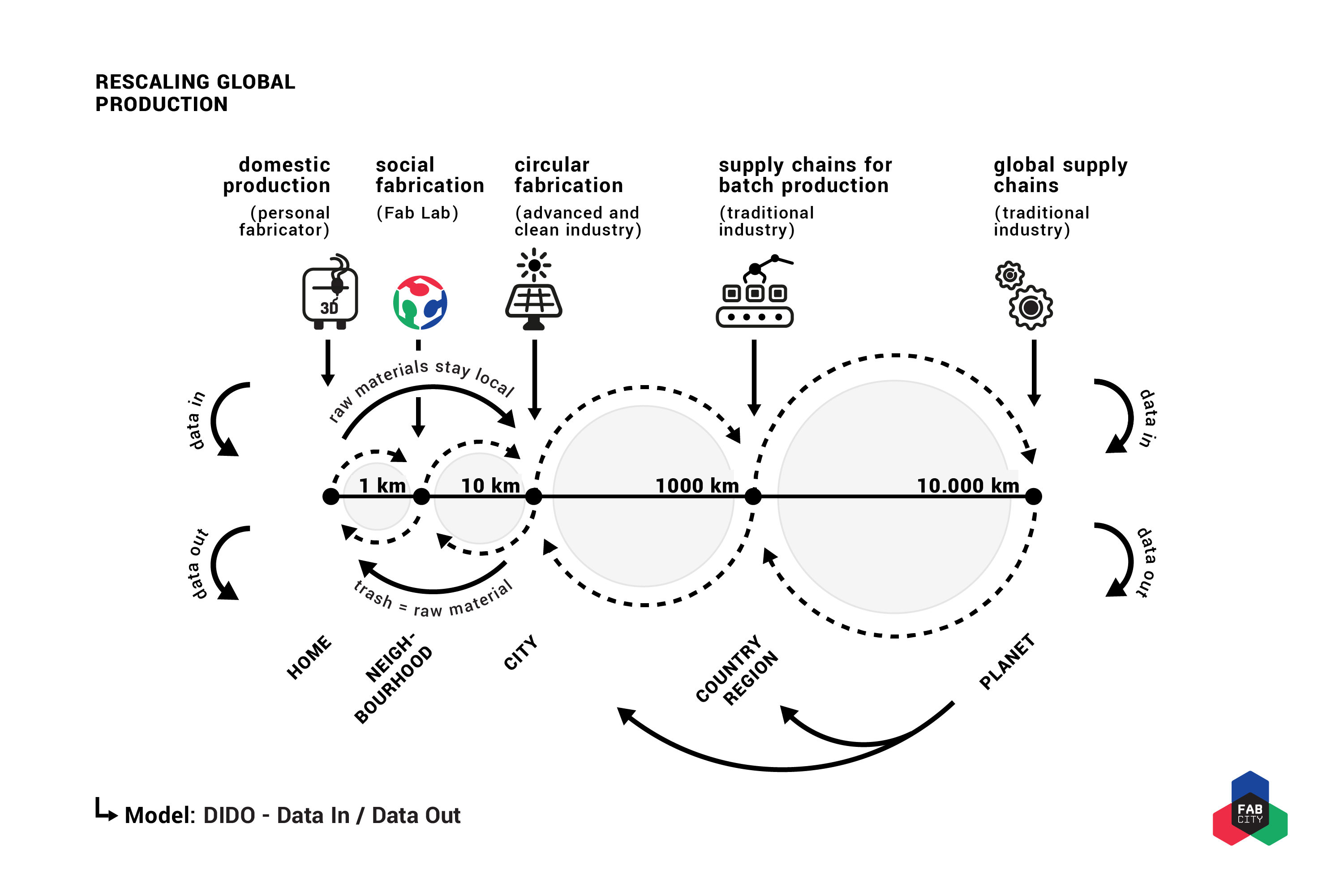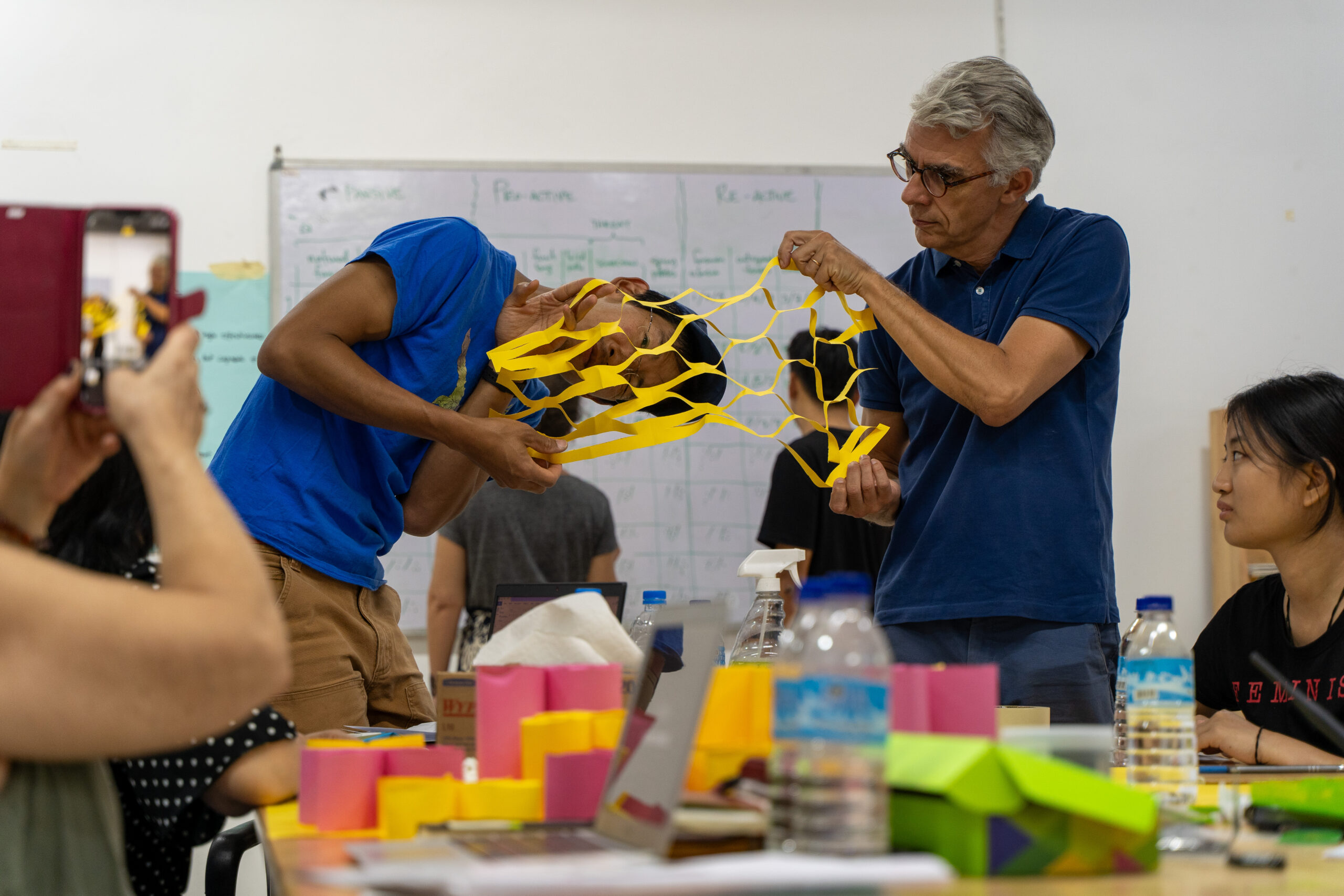The transition from a PITO (Products In, Trash Out) model to a DIDO (Data In, Data Out) framework is central to our approach to reimagining urban ecosystems. This shift, as illustrated in the Fab City Whitepaper, underpins the ethos of open-sourcing processes within the Fab City Global Initiative. By adopting a DIDO model, we advocate for cities that are not only locally productive but also globally connected, where data exchange supersedes the unsustainable movement of physical goods.
Last year, we began demystifying the process of organizing community-centric events by open-sourcing our methodologies with our Year 1 High-Quality Resource. This year, we are ready to elevate this commitment by open-sourcing our flagship event, the Fab City Challenge.

The Fab City Challenge in a nutshell
The Fab City Challenge is a dynamic and innovative initiative that brings together diverse local and global stakeholders, fostering collaborative problem-solving and community-driven solutions to address pressing social, environmental, and economic challenges through the creative use of distributed design, digital fabrication and sustainable practices.
These challenges support long-term, scalable and sustainable impact to typically persistent complex issues by responding effectively to local cultural and social dynamics. Critical Areas of Intervention encompass regenerative materials, climate-adaptive agriculture, waste management, and water conservation, among others. At first glance, the Challenge might resemble a conventional hackathon or design sprint, but it transcends these notions.
The Fab City Challenge evolves with each edition. Past editions, like the Fab Island challenge in Bali focused on regenerative economy and Fab City challenge Bhutan on resilient futures, highlight diverse approaches to sustainability. The upcoming Fab City challenge Mexico 2024, under the theme “Fabricating Equity and Social Justice,” aims to address equity through technological and innovative solutions, covering biodiverse cities, empowering social entrepreneurship, renewing neighborhood perspectives, water conservation, bio practices and accessible assistive technology.
Our Year 2 High-Quality Resource
The forthcoming resource will serve as a comprehensive guide to facilitate the Fab City Challenge’s local enactment, emphasizing the engagement of diverse stakeholders—ranging from communities and governments to businesses. It will present an in-depth implementation guide replete with step-by-step instructions. Additionally, the guide will feature a toolkit tailored for the meticulous planning, execution, and evaluation of challenges across different settings.
The methodology presented is crafted for flexible application, allowing for full implementation with the support of the Fab City Foundation or selective adoption to address particular needs within existing ecosystems. We hope the methodology serves as a tool for meaningful local change while challenging the global network of innovators to take action.
Stay tuned for updates on the Fab City Challenge and the release of our transformative resource:
Join us in shaping a more interconnected, sustainable, and open future.
